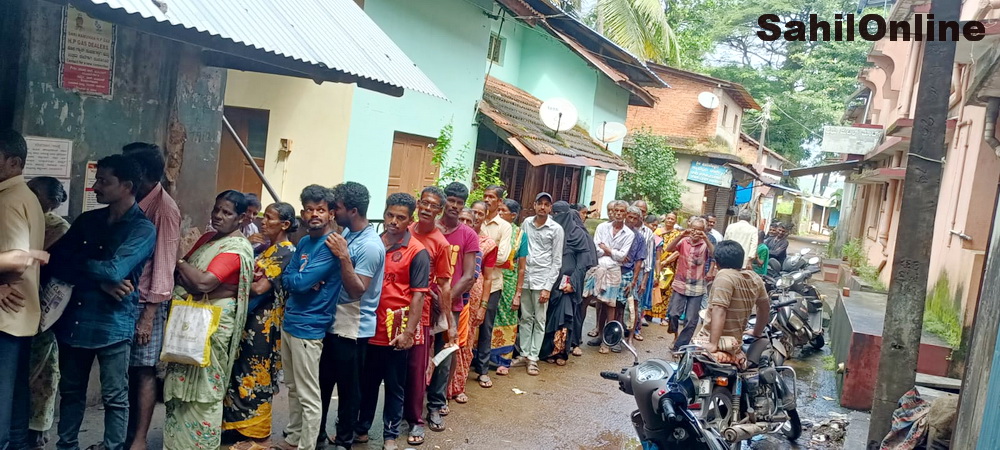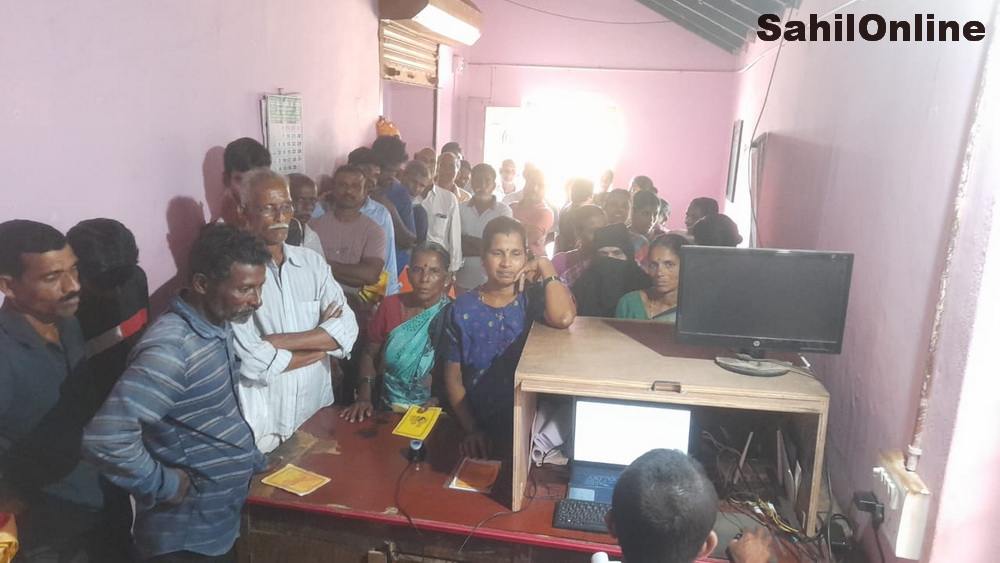
Bhatkal: Residents of Bhatkal are facing significant challenges in receiving their monthly ration due to ongoing server issues within the Food and Civil Supplies Department. This situation has forced many individuals to abandon their daily activities, as they find themselves waiting in long queues outside ration shops.
There are approximately 34 ration shops in the taluk, serving around 29,000 Below Poverty Line (BPL) families. Typically, the distribution of rations begins in the first week of each month and is completed by the third week. However, this month has seen disruptions caused by server malfunctions, leading to complaints from the public.
According to department orders, ration distribution for the public was scheduled to begin on October 18th. However, ration shop owners have expressed frustration due to persistent server issues affecting the distribution process.
With the Diwali festival approaching, many residents have had to stand in line for extended periods without being able to provide their fingerprints for verification. The server problems have made this essential process difficult.

Local resident Madev Naik expressed concern, stating, "If we do not receive our rations within the next nine days, we will miss out on this month's allocation." He urged the Food and Civil Supplies Department to take immediate action and allow ration distribution based on receipts instead of fingerprints, as the ongoing server issues have caused significant delays.
The department has acknowledged the problem, stating that the ration server, which was previously under the NIC (National Informatics Centre), has been integrated with KSDC (Karnataka State Data Centre). Unfortunately, this integration process has led to technical glitches affecting the server's functionality. Shashidhar, a food inspector, assured the public that a team of experts is currently investigating the issue, and they hope to resolve it within the next two days.
As the community awaits a solution, the urgency of resolving these technical difficulties becomes paramount to ensure that vulnerable families receive their essential food supplies in a timely manner.


